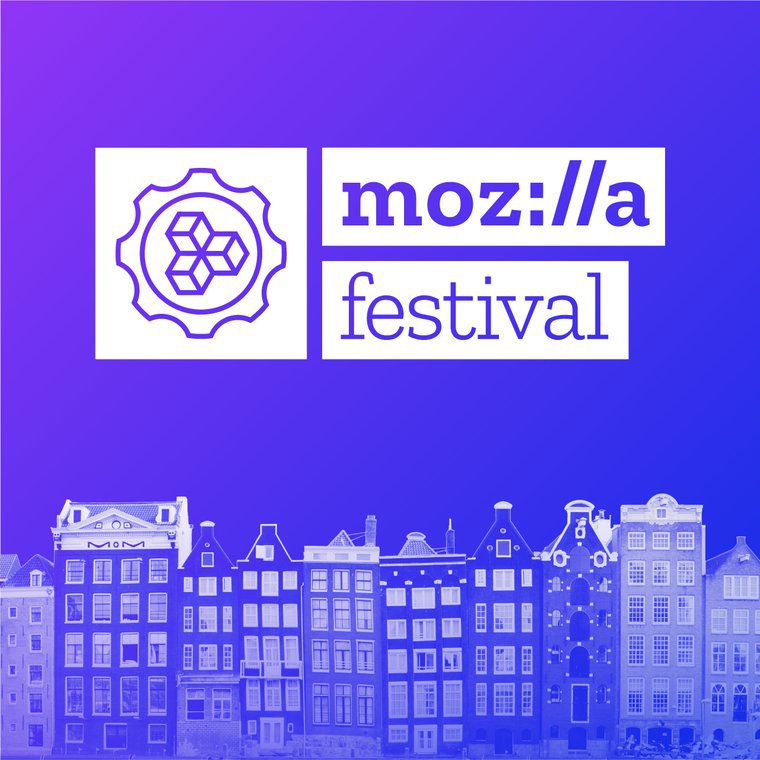In September, MozFest volunteers gathered (virtually) to learn how to make ceviche, do needlepoint, sing and recite poetry together, and experiment with the art of Indian beading. While these pastimes might seem far removed from internet health issues and trustworthy AI, they were an important part of the Onboarding experience for 40 MozFest Wranglers, the community co-designers for the 2021 festival.
Co-designing a festival with over 40 people is a tricky process! Our Wranglers hail from around the world and include technologists, researchers, activists, artists, and journalists. We ask this group to bring their vastly varied insights and experiences to the work of shaping the festival narrative, curating the program of sessions, and welcoming facilitators and participants to the event. It’s a collaboration—among a group of virtual strangers—that takes honesty, curiosity, open-mindedness, and trust. Typically, we kick off the co-design process with an in-person “retreat”.
In this pandemic year, our challenge was to create a virtual version of this intensely social, interpersonal experience. For those who’ve been working remotely for many months, the thought of more virtual meetings might prompt us to toss our laptops out the window (and we write from personal experience). For our virtual Onboarding, we needed to create an effective, enjoyable, and even joyful space to connect. We designed with three principles in mind. Our virtual onboarding needed to be:
- Lightweight: to avoid “zoom fatigue” and burnout, encourage playfulness
- Flexible: to accommodate many needs of a diverse group
- Human-centered: to build good working relationships and shared understandings

Onboarding was Lightweight
We planned a three-week virtual experience to replace our usual in-person 4-day retreat, held on several different platforms. We had three critical goals we needed to achieve during Onboarding:
- Wranglers begin to build relationships that enable collaboration,
- Wranglers gain an understanding of MozFest themes of TAI and IH, as well as a sense of the varied insights, skills, and perspectives of the cohort
- Wranglers begin to develop a shared vision for the festival, and begin to form teams around common topic areas or goals for MozFest.
With these goals in mind, we developed a program that we felt would most easily fit into Wranglers’ already busy lives. Our Wranglers juggle work, school, parenting, community commitments, and new pressures related to the pandemic as they co-design the Festival. It’s a big ask, so we needed to make the time they spent with us meaningful and useful.
And we knew that, realistically, our time with Wranglers was short! We couldn’t count on most of the cohort to have big uninterrupted blocks of time every day to devote to the Onboarding. Instead, they were more likely to have short bursts of time, attention, and energy.
We broke down the goals listed above into weeks, and kept the time commitment lightweight and clear. In week 1, wranglers participated in online social events and info sessions, for about 3 to 5 hours total across the week.. In week 2, Wranglers joined discussions about Trustworthy AI, Internet Health, and adjacent topics, also for about 3 to 5 hours across the week. In week 3 we had 3 consecutive days of synchronous video meetings, but for only about 2 or 3 hours per day, for a total of 8 hours across the week.
With such limited time, we had to be very creative with our agenda, thoughtful about the work we were asking Wranglers to do, and intentional about ways we’d engage them.
Onboarding was Flexible
Since nearly everything about virtual Onboarding was new, trying to make any particular moment or session “perfect” would be a recipe for frustration. Flexibility, in design and execution, was key. We dove in with the sense that the Onboarding would be an experiment and an adventure. And we invited Wranglers to come with the same mindset.
The first two weeks of the program were opt-in, “choose your own adventure” experiences. We scheduled these sessions across time zones, and at different hours to ensure that everyone could find something that fit their schedule. And we invited Wranglers to link up asynchronously in Donut chats and via discussion prompts on Slack, so those who didn’t meet during the social events still had a chance to connect. And we were able to test a few new platforms and tools that we may use at the festival itself.
This menu of experiences and modes of interaction helped prepare Wranglers for synchronous meetings in week 3. In these meetings, too, we offered several ways for participants with different communication styles and preferences to engage, ensuring that everyone had a way to participate and be heard. We used collaborative google documents, full cohort meetings and small group breakouts rooms in Zoom, both synchronous and asynchronous methods for Q&A and sharing in documents and in Slack.
And, as week 3 unfolded, we modified our plan. The group spent longer on some discussions than we’d planned, but we decided not to rush those conversations or jam a lot of information into a shorter time frame. Instead, we took cues from the group and moved at their pace. This kind of facilitation requires extra awareness and flexibility, but it pays off when the group feels relaxed and welcome to explore or question where they need to. They can then move onto the next task with confidence and clarity.
Onboarding was Human-Centered
Successful co-design depends on positive and energizing relationships among collaborators. So it was critical that during Onboarding our 40 Wranglers were able to know each other, discover common interests and points of fascinating difference, and organize themselves into teams that would work together for the next six months.
The week before Onboarding, we sent around a listing of all the Wranglers, with photo, biographical information, and pronunciation hints for each person’s name. So in week 1, when Wranglers attended virtual social events, they saw familiar faces even if they’d never met any of the others. Social events ranged from a virtual Pictionary game to online cooking classes to an Zoom “open mic” session. These sessions were designed and led by Wranglers, or members of our Wrangler Mentor program. We began the experience by building relationships rather than focusing on tasks or topics, because we knew positive interactions, curiosity, and connection with others would motivate the Wranglers through the Onboarding and beyond.
In week 2, we invited Wranglers to share their own perspectives and ideas in a new, interactie format we’re calling “Peer Shares.” These are 3 to 5 minute shares from one Wrangler, closing with a question or prompt, followed by a group discussion about the topic. The format was designed to spark conversation beyond the session; topics included “Yogurt and Experience Design” and “Mozfest: Environmental Impact and Sustainability” and “Mozfest Experience for Participants with Low Bandwidth.” The Peer Share allowed each participating Wrangler to center and frame the larger co-design process in terms of their particular experience, community, and vision for the Festival. Given the success of the trial, we’ll hold Peer Share sessions monthly throughout the process.
In week three we began each Zoom meeting with a moment of quiet, and attention to the breath, to ground ourselves in our virtual space, prepare for the task and hand. We also started each meeting by sharing-- either verbally or by typing in the doc-- the answer to an “icebreaker question” that provided a bit of insight or a glimpse into Wranglers’ lives.
While these design elements may seem minor, together they contributed to a sense of togetherness and connection that supports the work to come.

What’s In Store For The Next 5 Months
As 2020 draws to a close, our Wranglers will be reviewing MozFest session proposals from the community. They’ll select sessions that help illustrate various facets of internet health and Trustworthy AI, as represented by eleven spaces at MozFest 2021.
Once our 2021 sessions are selected, Wranglers will enlist Facilitators from around the world to help expand their Spaces narrative and theme into an exciting schedule and experience.
Much of this collaborative work happens via self-organised meetings, but also online in our community slack. Everyone is welcome to join slack and take part in the conversation!
MozFest is part art, tech and society convening, part maker festival, and the premiere gathering for activists in diverse global movements fighting for a more humane digital world. To learn more, visit www.mozillafestival.org.
Sign up for the MozFest newsletter here to stay up to date on the latest festival and internet health movement news.








